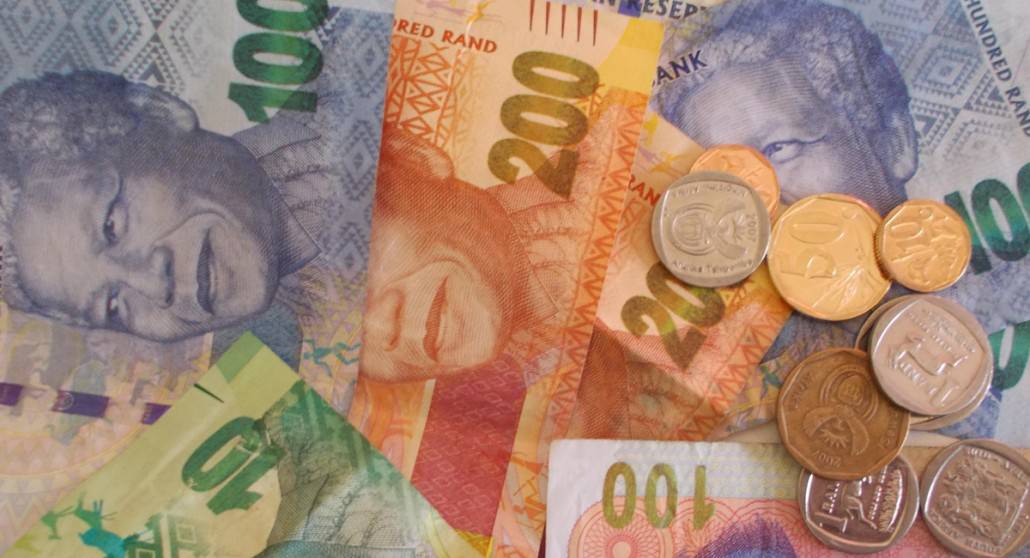By Thato Mahlangu
A new anti-crime campaign is set to crack the whip on tax evaders.
Anti-crime activist Yusuf Abramjee told Corruption Watch on Monday, 10 February 2020, that the campaign, called Tax Justice South Africa, will target tax evaders who rob tax payers of a better life. It was launched in November last year.
Abramjee said he hopes that it would help change the lives of ordinary South Africans by bringing those who were partly responsible for destabilising the economy to book, and halting the stealing of billions of rand by exposing corrupt individuals.
“One of the biggest threats we face is tax crime. It is killing our economy and robbing our people of a brighter future,” said Abramjee.
He called upon big business, as well as politicians, civil servants, and the tax-paying public to join the fight, adding that crime affects all people, especially the poor.
“Criminals (who are members of the society) are systematically looting the nation of R100-million every single day. Many have become billionaires by stealing people’s money and leaving millions to languish in poverty. These brazen tax evaders rob the income taxes, sales taxes, and corporation taxes that they should be paying and are needed to transform and rebuild South Africa,” he said.
Abramjee explained that the R100-million figure is an estimate that is based on government’s budget shortfall figures. “In 2018, there was a budget shortfall of R42.8-billion (R117-million per day) – a figure for which tax criminals were overwhelmingly responsible,” he said.
What does the campaign aim to do?
According to Abramjee, the campaign seeks to help to build a better nation by:
- Locking up criminal tax evaders who are looting South Africa of tens of billions of rand every year;
- Returning the stolen money to the South African people, who have been exploited by the tax crooks for decades;
- Ring-fencing recovered money for the education of our children, who are currently being robbed of their future;
- Exposing tax evasion throughout the South African economy, which is being plundered by illicit trading across multiple sectors; and
- Ensuring the accountability of State authorities so that every cop, politician, tax inspector and civil servant can do their job without fear or favour.
The impact of tax evasion
Abramjee described the scale of crime in South Africa as staggering, with law-abiding South Africans feeling the impact.
He said new ‘smart’ schools like the one named after anti-apartheid struggle icon Chief Albert Luthuli in Daveyton, east of Johannesburg, could have been built with the missing funds. Smart schools have access to start-of-the-art technology and equipment which aids learning and improves learning outcomes.
“[And] more than 4 000 primary teachers or 4 000 police officers could be employed for an entire year with just one week’s worth of the recovered taxes. The 5.1-million people living in shacks could be provided with social housing within just two years of collecting the lost revenue,” Abramjee said.
Tax evasion affects everyone
Abramjee described tax evasion as a crime that is not victimless.
“In fact, we are all victims,” he said, adding that it is everyone’s duty to join the fight against the criminals who are destroying the nation.
Tax Justice South Africa is supported by Makali Lepholisa, former commissioner for customs in Lesotho, and Andy Mashaile, Interpol Turn Back Crime ambassador, who together with Abramjee are directors of the campaign.
More efforts to fight tax evasion
In November 2019 the South Africa Revenue Service (Sars) won a protracted dispute with retail company Africa Cash and Carry.
According to The Sowetan, Sars said the retailer under-declared its sales for the 2003 to 2009 tax years, by “manually manipulating its financial records, resulting in its income tax and VAT liability being understated”. The under-disclosure and VAT liability was assessed at R1-billion.
Sars said the Supreme Court of Appeal (SCA) upheld an amendment order previously issued by the Tax Court, which also confirmed Sars’ imposition of 200% additional tax.
“The investigation revealed the under-declaration of sales and the manipulation of stock figures, and resulted in estimated income tax and VAT assessments, which were disputed by the taxpayer. The Tax Court altered the assessments and the taxpayer exercised its right of appeal to the SCA,” according to Sars.
Sars said it was committed to combat intentional tax evasion.
“Sars is concerned with the compliance levels within the Cash & Carry industry with a particular focus on ‘Ooplang’ schemes involving ‘Ghost Exports’, non-recording of the sale of cell-phone airtime, manipulation of loan accounts, claiming fraudulent invoices for VAT and Income Tax purposes, utilisation of intermediary shell companies to create invoices and sales suppression systems.”
Ooplang, according to Sars, is the practice of keeping a portion of VAT, collected on behalf of the tax authority, and hiding it from the government instead of declaring the full amount, while ghost exports are described as the manipulation of loan accounts, claiming fraudulent invoices for VAT and income tax purposes.

